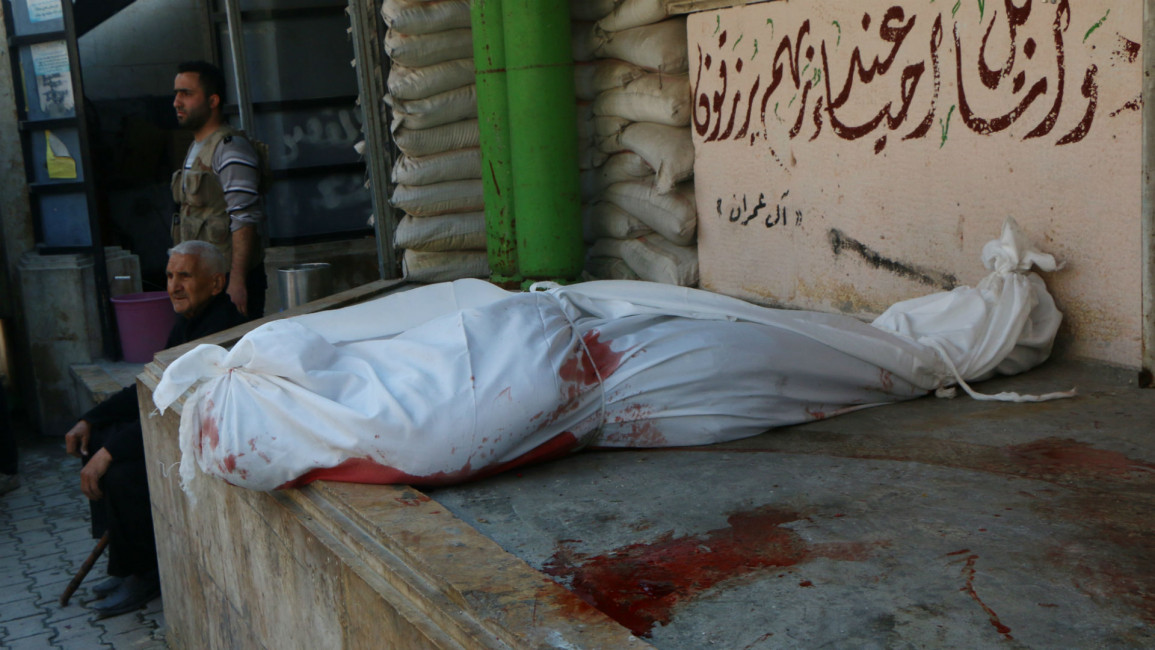
Meeting the murderer: France 2 and the Syrian dictator
Unknowingly - or perhaps knowingly - they gave the despot, who has been ignored and isolated by most international media outlets for the past two years, a platform to address the French people.
Airtime for the tyrant
One would not blame the channel if it were a minor media outlet, but with six million viewers in France and two million outside, France 2 enjoys huge popularity and credibility. It is often described as the "premiere" television channel in the country.
They allowed the mass murderer to speak on camera and dealt with him in a cold manner.
France 2 was looking for a scoop, so it interviewed the man who has inflicted untold misery on the Syrian people and destroyed the country.
It does not matter what kind of questions the interviewer asks, because by speaking to Assad on camera they are normalising relations with a veteran criminal.
This why most of the world's media has boycotted the man, in an effort to preserve a code of honour.
But one look at France today, and we would not hold the channel or the journalist fully accountable for such an immoral and unethical act.
After all, the channel's interview with the tyrant simply mirrors the level of hypocrisy at play in France.
Political circles and the media have paid little heed to the grievances of the Syrian people, and the sacrifices they have made for their freedom.
There is a sense of general solidarity with the Syrian revolution, but some French journalists and politicians are turning in the opposite direction.
| The channel's interview with the tyrant simply mirrors the level of hypocrisy at play in France. |
Leading French newspapers that shape public opinion, such as Le Figaro, have demonised the Syrian revolution.
Some journalists and media outlets betrayed their humanitarian and professional consciences through rampant corruption, fuelled by deals and interests.
Double standards
Last February, a French delegation of parliamentarians and politicians from both the ruling Socialist Party and the right-wing opposition visited Assad in Damascus.
The visit resulted in large-scale condemnation. However, the government and the opposition largely ignored them.
To this day, France has adopted a dignified official stance against the Assad regime.
French President Francois Hollande and Foreign Minister Laurent Fabius have both made statements that contradict the defeatist opinions of Washington.
They have both repeatedly affirmed that Paris does not consider Assad part of the solution in Syria and that he cannot play a role in the country's future.
Unfortunately, these statements were not translated into actions and aimed at simply cozying up to some Arab countries that are adamant the Syrian president must go.
Therefore, it appears that France, with these anti-Assad statements, is only looking to protect its interests in the region.
If we go back to the early days of the Syrian uprising, we find that the French foreign ministry had repeatedly conspired with Assad's administration through its ambassador to Damascus, Eric Chevallier.
France's opportunist approach is not new and dates back to the early Arab Spring.
Former French President Nicolas Sarkozy supported Tunisia's Ben Ali until the very last moment.
Paris was even sending aid for the Tunisian police as they brutally suppressed peaceful protesters.
The shipment was intercepted on January 14, the day Ben Ali fled the country, but French support for Arab dictators appears to continue to this day.
Syrian-born poet and journalist Basheer al-Baker spent several years living and working in Paris. His first anthology of poems, Qanadeel ila Rassif Oroppi, was first published in Beirut in 1995.
This is an edited translation from our Arabic edition.
Opinions expressed in this article remain those of the author and do not necessarily represent those of al-Araby al-Jadeed, its editorial board or staff.



